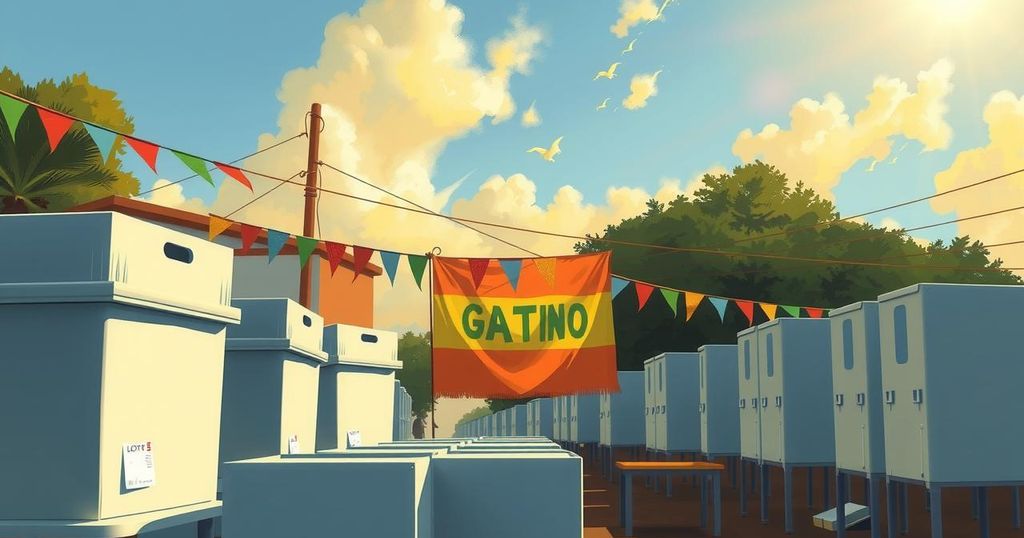Gabon Votes in Historic Presidential Election Post-Coup
Gabon held its first presidential election since the 2023 military coup, with interim president Gen. Brice Clotaire Oligui Nguema expected to win. The election involves 920,000 voters amidst ongoing poverty despite oil wealth, with calls for electoral transparency articulated by challenger Alain Claude Bilie-By-Nze, who opposes French influence. Voting occurred peacefully, revealing varied voter sentiments about military governance and political continuity.
Voters in Gabon participated in a significant presidential election following the military coup of 2023, marking the end of a political dynasty that spanned over five decades. The military rulers aim to legitimize their governance through this election, with expectations for an overwhelming victory for interim president Gen. Brice Clotaire Oligui Nguema, who led the coup and seeks a seven-year term.
Approximately 920,000 voters, including over 28,000 overseas, registered to cast their ballots at more than 3,000 polling stations. Despite Gabon’s vast oil wealth, one-third of its 2.3 million population lives in poverty. Shortly after the coup, former President Ali Bongo Ondimba was placed under house arrest and later released, while his family faced corruption charges.
Gen. Oligui Nguema promised to restore civilian rule through credible elections, campaigning on a platform of unity with the slogan, “We Build Together.” A new electoral code, allowing military personnel to participate in elections, was recently passed by parliament, along with a constitution reform limiting presidential terms to seven years.
Among the eight presidential candidates, Oligui Nguema’s primary opponent is Alain Claude Bilie-By-Nze, former prime minister under Bongo. Bilie-By-Nze has committed to restructuring public finance and addressing ties with France, asserting skepticism regarding the election’s fairness. “Everything has been done to lock down the vote,” he remarked in a recent interview.
Voting commenced peacefully in Libreville, where citizens expressed diverse opinions. Voter Jonas Obiang opted for Bilie-By-Nze, criticizing the current regime’s continuity. Reflecting a similar sentiment, Antoine Nkili voiced disappointment in military governance, stating their promises of reform were unfulfilled. Conversely, Jean Bie supported Oligui Nguema, noting his accomplishments during military rule and expressing optimism for future projects.
The Gabonese presidential election symbolizes a pivotal moment in the nation’s political trajectory, being the first since the 2023 military coup. With a focus on legitimizing the military regime, voters expressed varied opinions on leadership, balancing hope for reform against skepticism regarding the electoral process. As the nation navigates this transitional period, the outcome will profoundly impact both domestic governance and international relations, especially with France.
Original Source: www.news4jax.com




Post Comment